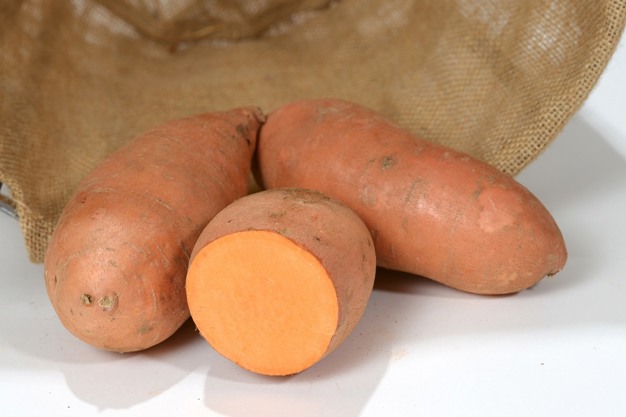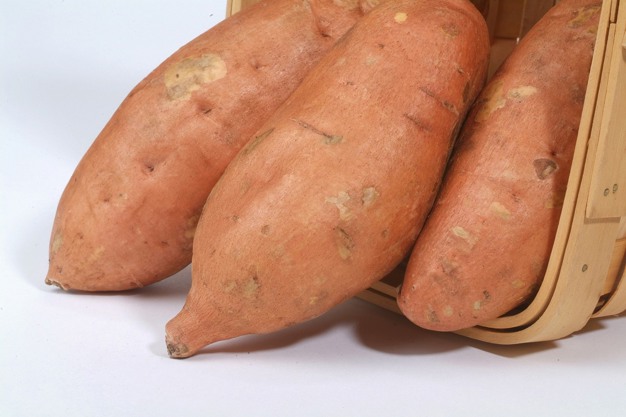Bellevue sweet potato is the most popular fresh market variety, grown in many of the key production areas in Europe. A number of pluses attest to its appeal, says Pat Fitzgerald of Nativaland. "High yield with an unusually consistent root shape makes for a high percentage of the product making it to retail. The attractive, eye-catching smooth skin is unlike other varieties on the market. It's widely adapted to different soil types and climatic zones from northern to southern Europe. A delicate flavor and bright orange flesh underscores its popularity with consumers."
Bellevue has built a strong following through the efforts of NativaLand, a company specialized in the development and management of sweet potato varieties like Bellevue, Orleans, Evangeline and Murasaki. "Nativaland holds exclusive control rights on behalf of breeders Louisiana State University AgCenter EU Plant Breeders' Rights (PBR) system, authorized by the Community Plant Variety Office (CPVO) in Angers, France," Fitzgerald explains. "Our carefully bred and selected sweet potato varieties represent years of research, innovation and investment, aimed at providing the highest quality products to farmers and consumers across the European Union."

Bellevue production, as well as the production for other varieties, has expanded beyond its European base and not all produce currently sold into EU is under authorised license. Unauthorised importation and sale of protected varieties undercuts the integrity of the PBR system and represents unfair competition with European producers who pay royalties, Fitzgerald states:
"The unauthorised importation and sale of protected sweet potato varieties result in significant financial losses for breeders, who rely on royalties to fund their ongoing research and development efforts. The breeders' innovation is what drives agricultural progress, leading to improved crop yields, pest resistance, and overall quality of the produce. When these rights are ignored, it jeopardizes the future of agricultural advancements and the availability of high-quality varieties in the market."

NativaLand is committed to defending its intellectual property rights of Louisiana State University AgCenter (LSUAC) and ensuring that the EU's PBR system is respected, Fitzgerald says. "To this end, we have formally requested the assistance of EU customs authorities to inspect incoming shipments of sweet potato from outside the EU. This measure is aimed at detecting and preventing the unauthorised entry of our protected varieties, thereby safeguarding the interests of breeders and ensuring that the rules governing PBR are upheld. We would like to emphasize that NativaLand and LSUAC will pursue all necessary actions against those who engage in the unauthorized importation and sale of our protected sweet potato varieties. This includes seeking damages for the financial losses incurred due to these unauthorised activities."
"We urge all importers and distributors within the EU to adhere strictly to the legal requirements surrounding plant breeders' rights. By doing so, they contribute to a fair and sustainable agricultural industry that rewards innovation and ensures a continuous supply of high-quality crops to the market. The unauthorised importation of protected plant varieties is a serious offense that has wide-reaching consequences for breeders, the agricultural industry, and consumers alike. NativaLand will continue to take strong action to protect the breeders rights and ensure that all players in the market adhere to the legal standards set forth by the EU. We are committed to defending the future of plant breeding and the innovations that sustain our food supply," Fitzgerald concludes.
For more information:
Pat Fitzgerald
NativaLand
Email: [email protected]
www.nativaland.com
